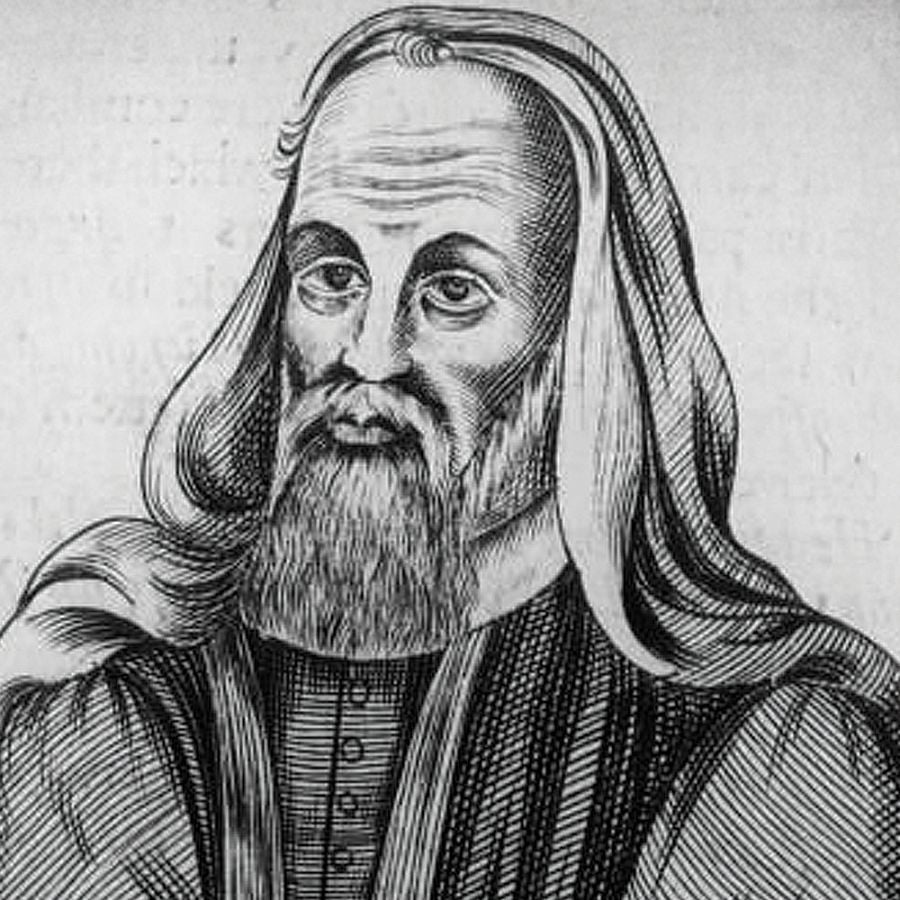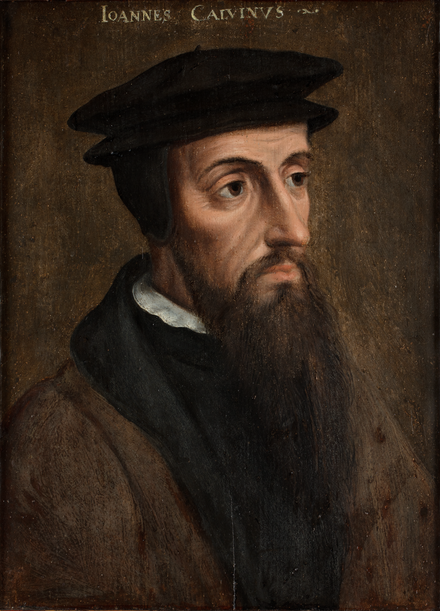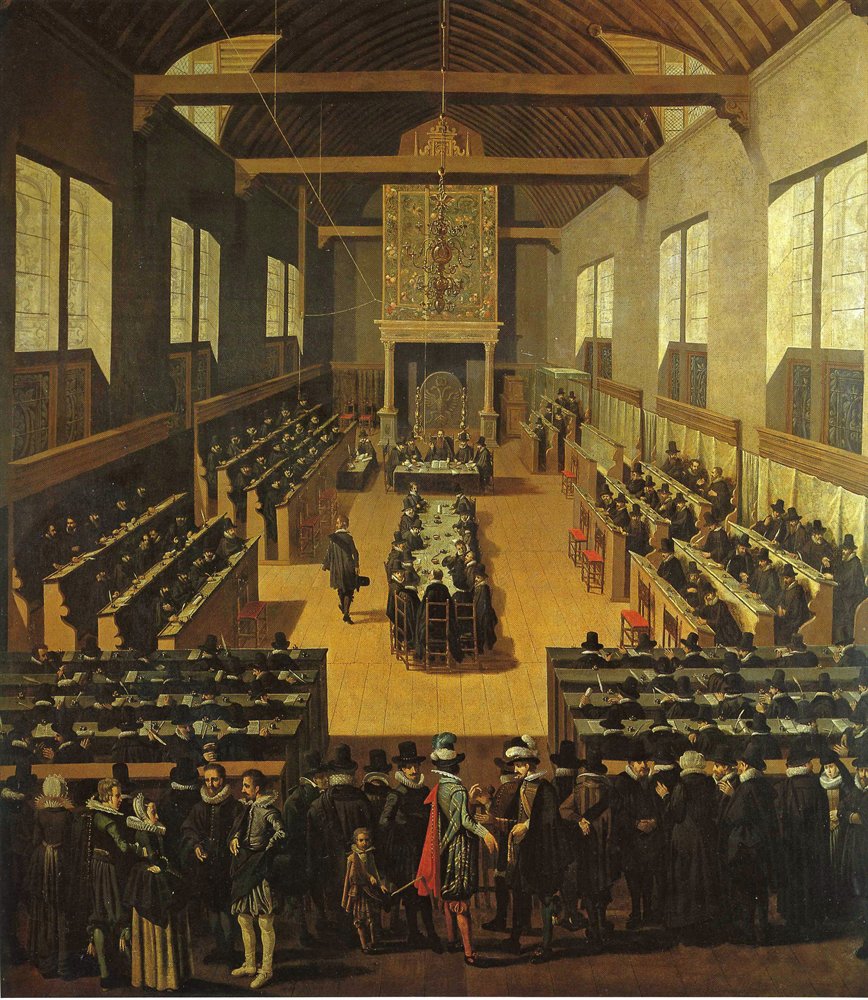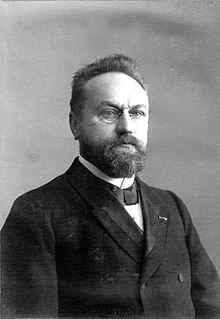WHAT IS PELAGIANISM?
"1. Adam would have died, even if he had not sinned.2. The sin of Adam injured himself alone, and not all mankind.3. New-born children are in the same condition in which Adam was before the Fall.4. It is not true that because of the death and sin of Adam all mankind die; neither is it true that because of Christ’sresurrection all men rise again.5. The Law leads to heaven as well as the Gospel.6. Even before the coming of Christ there were men who were entirely without sin." - Deacon Paulinus Of Milan’s Points Of Accusation Handed To Bishop Aurelius
“Then follow sundry statements charged against Pelagius, which are said to be found among the opinions of his disciple Cœlestius: how that “Adam was created mortal, and would have died whether he had sinned or not sinned; that Adam’s sin injured only himself and not the human race; that the law no less than the gospel leads us to the kingdom; that there were sinless men previous to the coming of Christ; that new-born infants are in the same condition as Adam was before the fall; that the whole human race does not, on the one hand, die through Adam’s death or transgression, nor, on the other hand, does the whole human race rise again through the resurrection of Christ.” These have been so objected to, that they are even said to have been, after a full hearing, condemned at Carthage by your holiness and other bishops associated with you. I was not present on that occasion, as you will recollect; but afterwards, on my arrival at Carthage, I read over the Acts of the synod, some of which I perfectly well remember, but I do not know whether all the tenets now mentioned occur among them. But what matters it if some of them were possibly not mentioned, and so not included in the condemnation of the synod when it is quite clear that they deserve condemnation? Sundry other points of error were next alleged against him, connected with the mention of my own name. They had been transmitted to me from Sicily, some of our Catholic brethren there being perplexed by questions of this kind; and I drew up a reply to them in a little work addressed to Hilary, who had consulted me respecting them in a letter. My answer, in my opinion, was a sufficient one. These are the errors referred to: “That a man is able to be without sin if he wishes. That infants, even if they die unbaptized, have eternal life. That rich men, even if they are baptized, unless they renounce all, have, whatever good they may seem to have done, nothing of it reckoned to them; neither can they possess the kingdom of God.” - Augustine of Hippo, On the Proceedings of Pelagius, Chapter 23
"The following, as the proceedings testify, was Pelagius’ own answer to these charges against him: “Concerning a man’s being able indeed to be without sin, we have spoken,” says he, “already; concerning the fact, however, that before the Lord’s coming there were persons without sin, we say now that, previous to Christ’s advent, some men lived holy and righteous lives, according to the teaching of the sacred Scriptures. The rest were not said by me, as even their testimony goes to show, and for them, I do not feel that I am responsible. But for the satisfaction of the holy synod, I anathematize those who either now hold, or have ever held, these opinions.” After hearing this answer of his, the synod said: “With regard to these charges aforesaid, Pelagius has in our presence given us sufficient and proper satisfaction, by anathematizing the opinions which were not his.” We see, therefore, and maintain that the most pernicious evils of this heresy have been condemned, not only by Pelagius, but also by the holy bishops who presided over that inquiry:—that “Adam was made mortal;” (and, that the meaning of this statement might be more clearly understood, it was added, “and he would have died whether he had sinned or not sinned;”) that his sin injured only himself and not the human race; that the law, no less than the gospel, leads us to the kingdom of heaven; that new born infants are in the same condition that Adam was before the fall; that the entire human race does not, on the one hand, die through Adam’s death and transgression, nor, on the other hand, does the whole human race rise again through the resurrection of Christ; that infants, even if they die unbaptized, have eternal life; that rich men even if baptized, unless they renounce and give up all, have, whatever good they may seem to have done, nothing of it reckoned to them, neither can they possess the kingdom of God;”—all these opinions, at any rate, were clearly condemned in that ecclesiastical court,—Pelagius pronouncing the anathema, and the bishops the interlocutory sentence." - Augustine of Hippo, On the Proceedings of Pelagius, Chapter 24
"The following are the wild thickets of this heresy, which we are sorry to see shooting out buds, nay growing into trees, day by day:—“That Adam was made mortal, and would have died whether he had sinned or not; that Adam’s sin injured only himself, and not the human race; that the law no less than the gospel leads to the kingdom; that new-born infants are in the same condition that Adam was before the transgression; that the whole human race does not, on the one hand, die in consequence of Adam’s death and transgression, nor, on the other hand, does the whole human race rise again through the resurrection of Christ; that infants, even if they die unbaptized, have eternal life; that rich men, even if baptized, unless they renounce and surrender everything, have, whatever good they may seem to have done, nothing of it reckoned to them, neither can they possess the kingdom of God; that God’s grace and assistance are not given for single actions, but reside in free will, and in the law and teaching; that the grace of God is bestowed according to our merits, so that grace really lies in the will of man, as he makes himself worthy or unworthy of it; that men cannot be called children of God, unless they have become entirely free from sin; that forgetfulness and ignorance do not come under sin, as they do not happen through the will, but of necessity; that there is no free will, if it needs the help of God, inasmuch as every one has his proper will either to do something, or to abstain from doing it; that our victory comes not from God’s help, but from free will; that from what Peter says, that ‘we are partakers of the divine nature,’" - Augustine of Hippo, On the Proceedings of Pelagius, Chapter 65
“Synod against the heresy of Pelagius and Celestius:In the consulate of the most glorious Emperors, Honorius for the XIIth time and Theodosius for the VIIIth, Augusti most exalted, on the Calends of May, at Carthage in the secretarium of the Basilica of Faustus. When Aurelius the bishop presided over the whole council, the deacons standing by, it pleased all the bishops, whose names and subscriptions are indicated, met together in the holy synod of the Church of Carthage to define—“ - Synod of Carthage, Preface
“That Adam was not created by God subject to death:
That whosoever says that Adam, the first man, was created mortal, so that whether he had sinned or not, he would have died in body—that is, he would have gone forth of the body, not because his sin merited this, but by natural necessity, let him be anathema.” - Synod of Carthage, Canon I
“That infants are baptized for the remission of sins:Likewise it seemed good that whosoever denies that infants newly from their mother’s wombs should be baptized, or says that baptism is for remission of sins, but that they derive from Adam no original sin, which needs to be removed by the laver of regeneration, from whence the conclusion follows, that in them the form of baptism for the remission of sins, is to be understood as false and not true, let him be anathema. For no otherwise can be understood what the Apostle says, “By one man sin is come into the world, and death through sin, and so death passed upon all men in that all have sinned,” than the Catholic Church everywhere diffused has always understood it. For on account of this rule of faith even infants, who could have committed as yet no sin themselves, therefore are truly baptized for the remission of sins, in order that what in them is the result of generation may be cleansed by regeneration.” - Synod of Carthage, Canon II
1. Adam was created mortal so that he was going to die, whether he sinned or not.2. The sin of Adam harmed him alone and not the whole human race.3. The law leads to heaven in the same way as the Gospel.4. Newborn infants are in the same condition as Adam before his transgression.5. The whole human race does not die through the death or transgression of Adam, and the whole human race does not rise through the resurrection of Christ.6. Even if an infant dies unbaptized, they have eternal life.7. If wealthy persons who have been baptised do not renounce all their possessions, they have no merit, even if they seem to do something good, and they will not possess the kingdom of heaven.8. God’s grace and help is not given for individual actions, but consists in free will and the law and teaching.9. God’s grace is given in accord with our merits, and for this reason grace itself is located in the human will, whether one becomes worthy of it or unworthy.10. Only those people can be called children of God who have become entirely without sin.11. Forgetfulness and ignorance are not sinful, because they do not come about willingly, but necessarily.12. A choice is not free if it needs the help of God, since everyone has their own will either to do something or not to do it.13. Our victory is not the result of God’s help, but of free will.14. From Peter’s statement: We are sharers in the divine nature [2 Pet. 1:4], it follows that the soul can be as sinless as God.
We now have 14 points associated with "Pelagianism" that we can dissect.
EXAMINING RELEVANT POINTS OF PELAGIANISM
AS IT PERTAINS TO ANCESTRAL SIN
1. Adam didn't have internal sinful temptations or inclinations in his flesh that led him to sin. The sin was brought about by external temptation from the serpent. But all humans after the fall do have internal sinful inclintions and temptations that leads us toward sin regardless of what external forces are involved.
2. Adam wasn't inherently physically mortal so that he would inevitably die. But all humans from conception are physically mortal and have the inevitability of dying.
3. It wasn't an inevitable fact that Adam would eventually sin. But it is an inevitable fact that all of his descendants will eventually sin.
Point 5: The whole human race does not die through the death or transgression of Adam, and the whole human race does not rise through the resurrection of Christ.
A SUMMARY OF THE EARLY HISTORY OF INFANT SALVATION
The historic affirmers of original sin generally believed the default fate of deceased infants is damnation (with varying degrees of harshness and punishment) with the exception of views like limbo becoming prominent among some in the Middle Ages. We will cite just Carthaginian councils as an example of this. We cover this point much more exhaustively in our article here about the historical connection between original sin and infant damnation.
"Likewise it seemed good that whosoever denies that infants newly from their mother’s wombs should be baptized, or says that baptism is for remission of sins, but that they derive from Adam no original sin, which needs to be removed by the laver of regeneration, from whence the conclusion follows, that in them the form of baptism for the remission of sins, is to be understood as false and not true, let him be anathema. For no otherwise can be understood what the Apostle says, “By one man sin is come into the world, and death through sin, and so death passed upon all men in that all have sinned,” than the Catholic Church everywhere diffused has always understood it. For on account of this rule of faith even infants, who could have committed as yet no sin themselves, therefore are truly baptized for the remission of sins, in order that what in them is the result of generation may be cleansed by regeneration." - Council of Carthage in 418, Canon II
“Also it seemed good, that if anyone should say that the saying of the Lord, "In my Father's house are many mansions" is to be understood as meaning that in the kingdom of heaven there will be a certain middle place, or some place somewhere, in which infants live in happiness who have gone forth from this life without baptism, without which they cannot enter the kingdom of heaven, which is eternal life, let him be anathema. For after our Lord has said: "Unless a man be born again of water and of the Holy Spirit he shall not enter the kingdom of heaven," what Catholic can doubt that he who has not merited to be coheir with Christ shall become a sharer with the devil: for he who fails of the right hand without doubt shall receive the left hand portion.” - Council of Carthage in 419, Canon CX
With Carthage, we see three primary components of original sin. 1. Adamic guilt for all humans as one of the consequences of the fall. 2. Infant damnation as a result of Adamic guilt. 3. Infant baptism as the remedy for infant damnation. This council is clear that there is no positive fate at all for any infant who dies prior to being water baptized. It erroneously claims that this is how the Catholic Church everywhere has always understood this issue which is demonstrably false.
In fact, we see many early Christians prior to the 5th century who articulated a positive fate for deceased infants and didn't affirm the distinctions of original sin (perpetually inherited/imputed Adamic guilt). Instead, they affirmed something more in line with ancestral sin. We cover this point much more exhaustively with over 100 citations in our article here about ancestral sin in early Christianity. Here's a short list of writers on this point which are included in that article.
1. The Shepherd of Hermas (100 AD - 160 AD)
2. Athenagoras of Athens (133 AD - 190 AD)
3. Tertullian of Carthage (155 AD - 220 AD)
4. Origen of Alexandria (185 AD - 253 AD)
5. Ephrem the Syrian (306 AD - 373 AD)
6. Ambrosiaster (366 AD - 384 AD)
7. Gregory of Nazianzus (329 AD - 390 AD)
8. Gregory of Nyssa (335 AD - 395 AD)
9. John Chrysostom (347 AD - 407 AD)
10. Theodore of Mopsuestia (350 AD - 428 AD)
2. Athenagoras of Athens (133 AD - 190 AD)
3. Tertullian of Carthage (155 AD - 220 AD)
4. Origen of Alexandria (185 AD - 253 AD)
5. Ephrem the Syrian (306 AD - 373 AD)
6. Ambrosiaster (366 AD - 384 AD)
7. Gregory of Nazianzus (329 AD - 390 AD)
8. Gregory of Nyssa (335 AD - 395 AD)
9. John Chrysostom (347 AD - 407 AD)
10. Theodore of Mopsuestia (350 AD - 428 AD)
So it would seem that we've found a point of agreement out of the 14 that are deemed "Pelagian". But are we alone in this? Do those who bring this charge of Pelagianism against ancestral sin affirm that unbaptized infants aren't saved if they die? Are they in agreement with historical original sin affirmers like Augustine, the Carthaginian councils, Prosper of Aquitaine, Avitus of Vienne, Fulgentius of Ruspe, Pope Gregory I, and many more that infants who die unbaptized are damned for eternity?
It seems to us that if ancestral sin falls under Pelagianism for agreeing on the point that deceased infants are saved by God irrespective of water baptism; then any who make this argument against ancestral sin yet agree with this point would also fall under Pelagianism. We think that many who try to make this argument connecting ancestral sin to Pelagianism prove too much and actually connect themselves to Pelagianism as well in the end. In this scenario, the argument would be self-defeating.
To dig deeper into this, we will now look at the issue of infant salvation across various traditions that are prone to arguing (in varying degrees) that ancestral sin is a Pelagian doctrine. This argument is most common among those descending from an Augustinian theological framework.
What we will find is that it seems most theological traditions affirm at least some amount of deceased unbaptized infants are saved in one way or another through various means. This usually takes the form of some covenantal household salvation principle.
EXAMINING INFANT SALVATION IN VARIOUS THEOLOGICAL TRADITIONS
"We must keep the ordered power in mind and form our opinion on the basis of it. God is able to save without Baptism, just as we believe that infants who, as sometimes happens through the neglect of their parents or through some other mishap, do not receive Baptism are not damned on this account. But in the church we must judge and teach, in accordance with God’s ordered power, that without the outward Baptism no one is saved. Thus it is due to God’s ordered power that water makes wet, that fire burns, etc. But in Babylon Daniel’s companions continued to live unharmed in the midst of the fire (Dan. 3:25). This took place through God’s absolute power, in accordance with which He acted at that time; but He does not command us to act in accordance with this absolute power, for He wants us to act in accordance with the ordered power." - Lectures on Genesis, AE 3:274
"Martin Luther also found hope for the salvation of the children of Christian parents based on God’s promise to answer the prayers of those who trust in Him, combined with the fact that their parents had certainly prayed for them prior to their birth. Ultimately, although we cannot pronounce with absolute certainty the salvation of unbaptized children (or of anyone other than ourselves for that matter), and although why and how remains shrouded in mystery, the plentiful promises and revelations of God’s merciful character found in Scripture mean that there is certainly no cause for despair or anxiety when children of Christian parents die prior to Baptism." - Rev. Jason P. Peterson, Lutheran Reformission, Are babies saved without Baptism?
"In other words, we never cast doubt on the salvation of a child because dad and mom couldn’t or didn’t get that child to holy water. Since it is commanded Luther writes, “Those adults who despised circumcision or who despise Baptism are surely damned” (AE 3:103). Those who refuse to bring the child to baptism are cursed, not the child. It is the one who withholds God’s mercy and grace that is judged, not the one in need of the mercy. The child is always – before, during, and after baptism – at the mercy of his heavenly Father, who is indeed merciful and full of compassion. The child, the infant, is saved the same way an adult is saved: by the will of God through the word of God. That is, by grace through faith." - Pastor Mark Lovett, Steadfast Lutherans, The Necessity of Holy Baptism
“Howbeit, if I should be asked concerning the infants of Christians, which depart without this sacrament: mine answer should be, that we must have a good hope of them and stick fast to the Word of God; namely, to the covenant made with Abraham, wherein God promises Himself, not only that He would be a God unto him, but also unto his seed. Which promise, seeing it is not so general, as it comprehends all; therefore I dare not promise certain salvation particularly unto any that departs hence. For their be some children of the saints, which belong not unto predestination; such we read to be Esau, Ishmael, and others more, whose salvation is not hindered, in respect that they were not baptized." - Common Places, Book II, Chapter I
"I always except the children of the elect; for we doubt not to number them among the company of believers, though they as yet believed not by reason of their age: even as they which be born of infidels, are reckoned among the unbelievers, although of themselves they withstand not the faith. So as the children of the godly, departing without baptism, by reason of the covenant that God hath made with their parents, may be saved; if they appertain to the number of such as be predestinate. Also, I do except all others, if any there be, which by the secret council of God belong unto predestination." - Common Places, Book II, Chapter I
"Neither must it be thought that I have spoken these things, to the intent that I would promise salvation unto all the children of the faithful which depart without the sacrament: for if I should so do, I might be counted rash. I leave them to be judged of the mercy of God, seeing I have no knowledge of the secret election and predestination. But this only I affirm, that they are in very deed saved upon whomsoever the divine election lighteth, although they be not baptized. For God hath not tied grace unto the sacraments as though without them He neither can nor will save any also. I hope well of such young children, because I see that they be born of faithful parents. Which (as it hath been declared) hath no mean promises: which though they be not general as concerning all (as appeareth of Jacob and Esau, which had both one father and one mother), yet when as I see nothing otherwise, it is meet that I should hope well of the salvation of such infants:" - Common Places, Book IV, Chapter VIII
“The other difference is, that the benefit of Christ does not come to all men, while Adam has involved his whole race in condemnation; and the reason of this is indeed evident; for as the curse we derive from Adam is conveyed to us by nature, it is no wonder that it includes the whole mass; but that we may come to a participation of the grace of Christ, we must be ingrafted in whim by faith. Hence, in order to partake of the miserable inheritance of sin, it is enough for thee to be man, for it dwells in flesh and blood; but in order to enjoy the righteousness of Christ it is necessary for thee to be a believer; for a participation of him is attained only by faith. He is communicated to infants in a peculiar way; for they have by covenant the right of adoption, by which they pass over unto a participation of Christ. Of the children of the godly I speak, to whom the promise of grace is addressed; for others are by no means exempted from the common lot.” - John Calvin, Commentary on Romans 5:17
“Calvin says that infants born of parents who have the faith are saved, even though they should die without Baptism. But this is false: for David was born of parents who had the faith, and he confessed that he was born in sin. This was also taught by the Council of Trent in the Fifth Session, number Four: there the fathers declared that infants dying without Baptism, although born of baptized parents, are not saved, and are lost, not on account of the sin of their parents, but for the sin of Adam in whom all have sinned” - Alphonsus Liguori, On the Council of Trent, p. 56
"The Continental Calvinists, with few exceptions, followed the great Geneva Reformer in confining salvation to elect infants after previous regeneration, whether baptized or not, and in excluding non-elect infants, whether baptized or not." - Philip Schaff, Creed Revision in the Presbyterian Churches, p. 18
The Arminians at Dort, 1618 AD - 1619 AD (In the Arminian Tradition)
"All the children of the faithful are sanctified in Christ, so thatnot one of them, dying before the use of reason, perishes; in no wise, onthe contrary, are even some of the children of the faithful, dying in in-fancy, before any sin of act [actuale] committed in their own person, tobe counted in the number of the reprobate, so that neither the holylaver of baptism, nor the prayers of the Church can in any way profitthem to salvation. No children of believers baptized in the name of the Father, and of the Son, and of the Holy Ghost, while they are living in the state of infancy, are to be counted among those who have been reprobated by an absolute decree.” - Sentences of the Remonstrants, Article IX-X
“Fourthly, this external covenanting, wherein God promiseth to be the believers God, and the God of their children, is a mean not only to beget and foster faith in the covenanting parents, for their own salvation, but also a mean to comfort them about the salvation of their infants, dying in their infancy, whether before or after their baptism; and a mean to give them good hope of those children’s blessed resurrection, by virtue of the promise, because in covenanting, the Lord doth promise to be the believer’s God, and the God of his children, and doth not exact the condition of actual faith from their dying infants.” - Therapeutica Sacra, Book I, Chapter VI
"All who die in infancy are saved. This is inferred from what the Bible teaches of the analogy between Adam and Christ (Romans 5:18, 19) . . . The Scriptures nowhere exclude any class of infants, baptized or unbaptized, born in Christian or in heathen lands, of believing or unbelieving parents, from the benefits of redemption in Christ" - Systematic Theology, Vol I, p. 26
"For, whether the grace of Christ is called in for the pardon of the sin of those who die in infancy or merely for the removal of their uncondemnable depravity, in either case their destiny is determined irrespective of their choice, by an unconditional decree of God, suspended for its execution on no act of their own; and their salvation is wrought by an unconditional application of the grace of Christ to their souls, through the immediate and irresistible operation of the Holy Spirit prior to and apart from any action of their own proper wills . . . This is but to say that they are unconditionally predestinated to salvation from the foundation of the world" - Two Studies in the History of Doctrine, p. 230
"The children of the covenant, baptized or unbaptized, when they die enter heaven; with respect to the destiny of the others so little has been revealed to us that the best thing we can do is to refrain from any positive judgment" - Gereformeerde Dogmatiek, Third edition, Vol. IV, p. 711
"Most Calvinistic theologians have held that those who die in infancy are saved . . . Certainly there is nothing in the Calvinistic system which would prevent us from believing this; and until it is proven that God could not predestinate to eternal life all those whom he is pleased to call in infancy we may be permitted to hold this view" - The Reformed Doctrine of Predestination, p. 143-144
"Parents are responsible for requesting emergency baptism for an infant. They should be assured that questions of ultimate salvation or of the provision of a Christian funeral for an infant who dies do not depend upon whether or not the child has been baptized." - Emergency Baptism, Footnote 2
"Our conclusion is that the many factors that we have considered above give serious theological and liturgical grounds for hope that unbaptised infants who die will be saved and enjoy the Beatific Vision. We emphasise that these are reasons for prayerful hope, rather than grounds for sure knowledge. There is much that simply has not been revealed to us (cf. Jn 16:12). We live by faith and hope in the God of mercy and love who has been revealed to us in Christ, and the Spirit moves us to pray in constant thankfulness and joy (cf. 1 Thess 5:18)." - The Hope of Salvation for Infants who die without being Baptized, Section 102
ISSUING OUR ULTIMATUM
“Also it seemed good, that if anyone should say that the saying of the Lord, "In my Father's house are many mansions" is to be understood as meaning that in the kingdom of heaven there will be a certain middle place, or some place somewhere, in which infants live in happiness who have gone forth from this life without baptism, without which they cannot enter the kingdom of heaven, which is eternal life, let him be anathema. For after our Lord has said: "Unless a man be born again of water and of the Holy Spirit he shall not enter the kingdom of heaven," what Catholic can doubt that he who has not merited to be coheir with Christ shall become a sharer with the devil: for he who fails of the right hand without doubt shall receive the left hand portion.” - Council of Carthage in 419, Canon CX













No comments:
Post a Comment